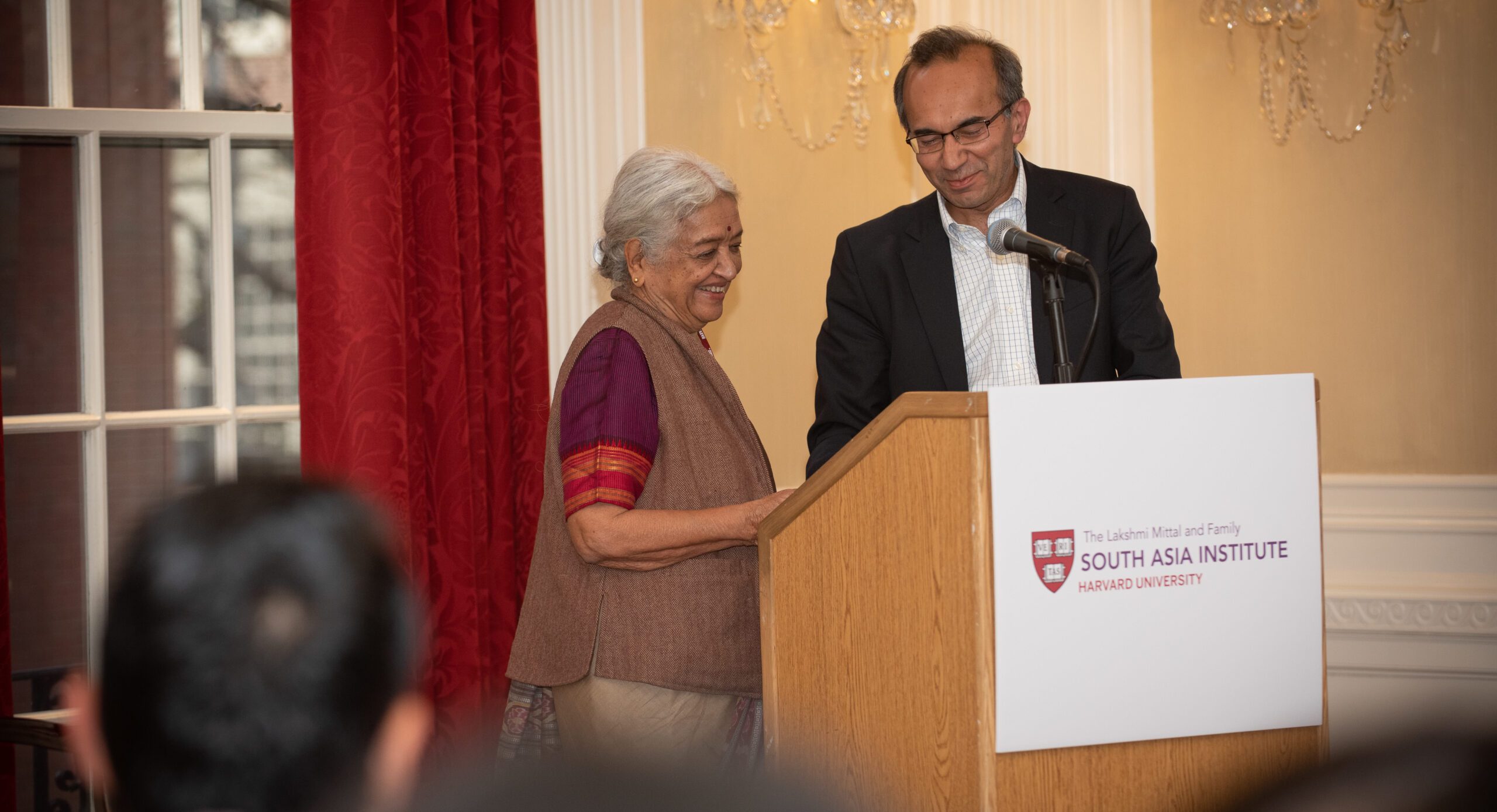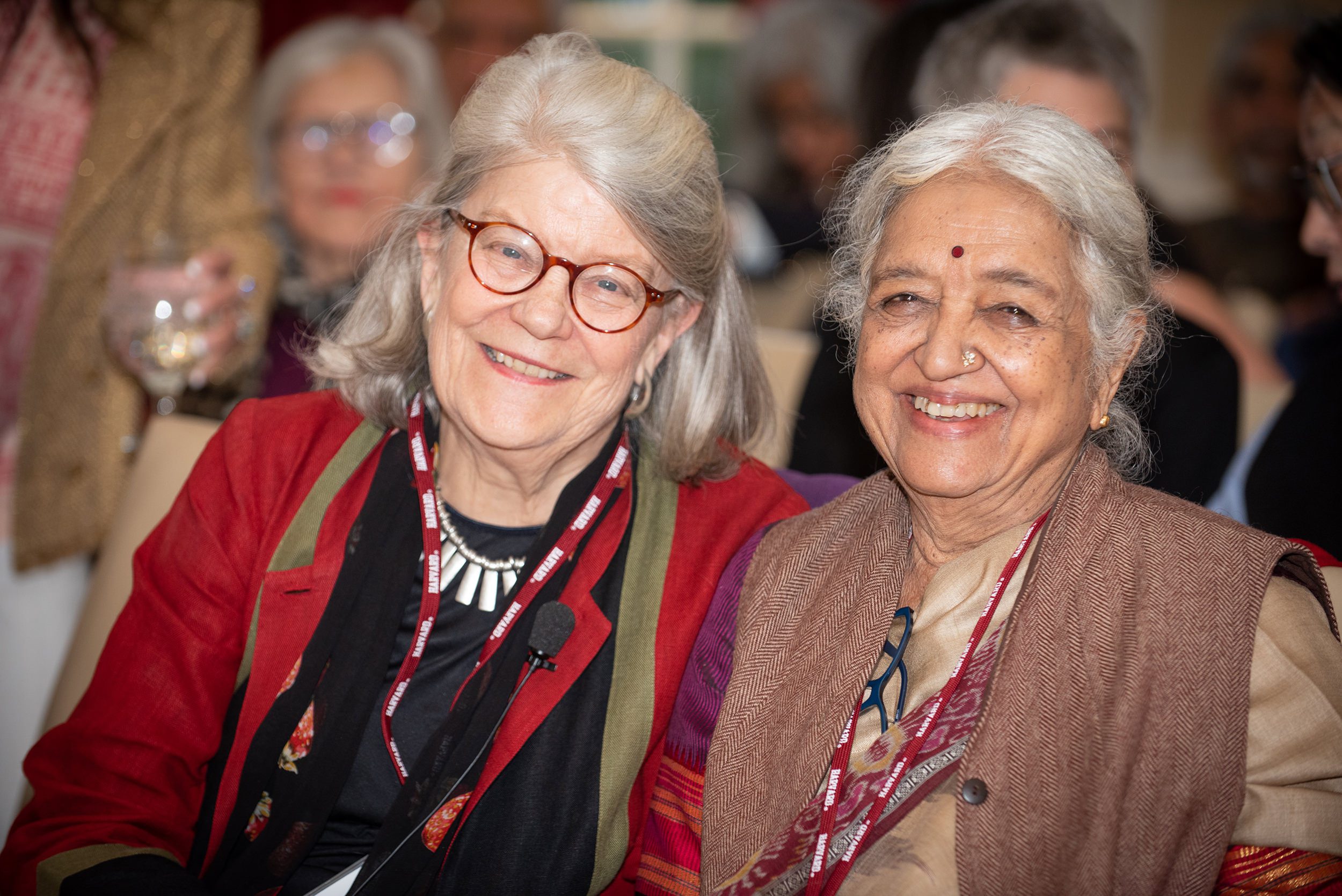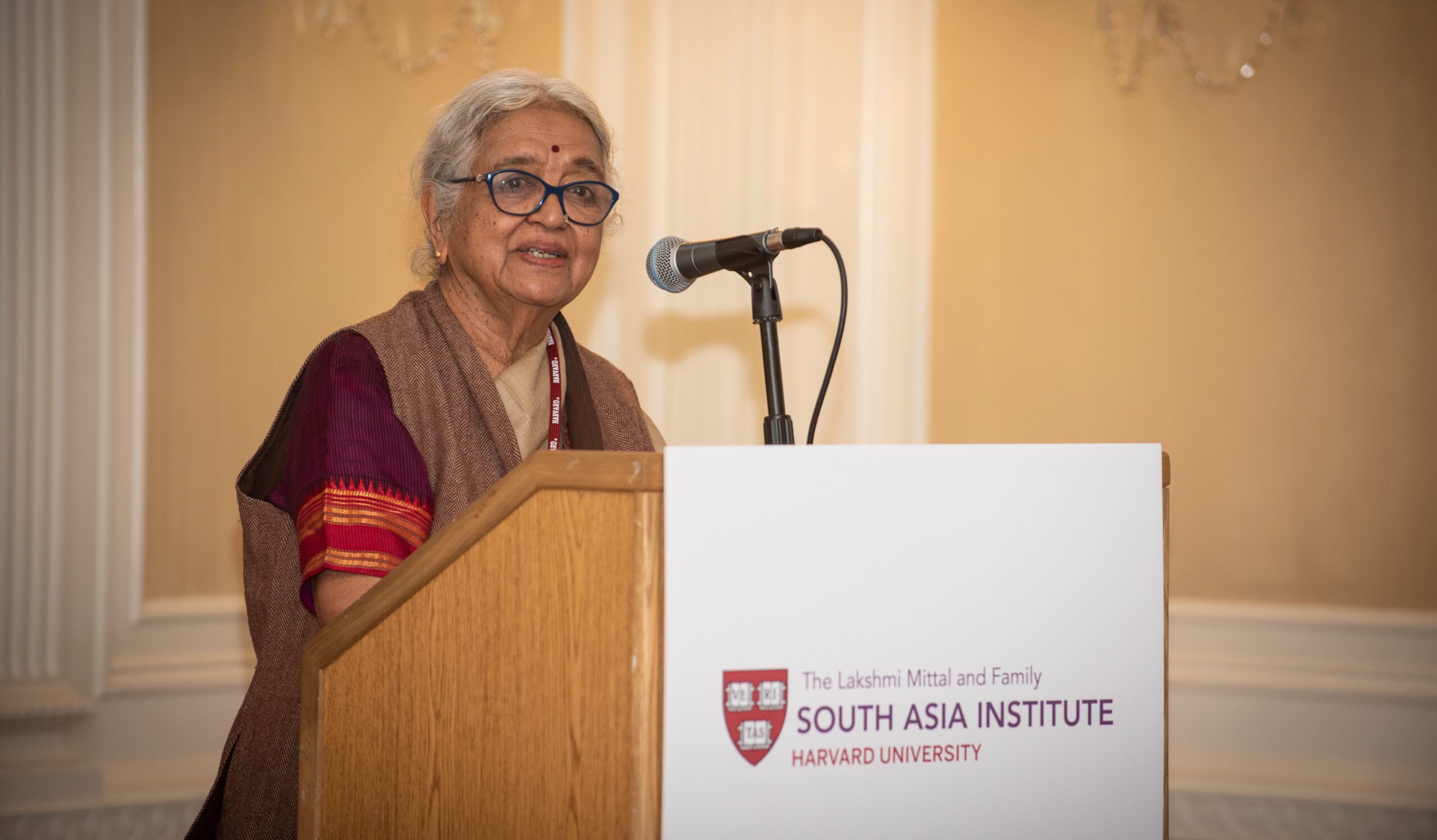[soundcloud id=’613744440′ height=’false’ color=’#daa5f8′]
At the Mittal Institute’s 10th Annual Mahindra Lecture, economist and activist Devaki Jain spoke about India’s post-independence politics and economics, her life and experiences, and the growing feminist movement in India. The lecture was introduced by Tarun Khanna, Mittal Institute Director and Jorge Paulo Lemann Professor at Harvard Business School, and moderated by Diana Eck, Professor of Comparative Religion and Indian Studies at Harvard Divinity School.

Devaki Jain (left) and Professor Tarun Khanna (right) speak at the Mahindra Lecture.
Professor Khanna opened the discussion with an overview of the Mittal Institute’s annual Mahindra Lecture. “The Mahindra Lecture has really become a celebratory occasion for us, because it’s an opportunity for us to invite somebody who has, in my language, really shaped the fabric of society,” he said.
Professor Eck joined the stage to discuss her decades-long relationship with Devaki Jain. After Professor Eck completed her work in Banaras, India in the 1970s, she began spending more time in Delhi. “I began meeting people who were more my own contemporaries and counterparts who were intellectuals, activists, feminists, and I discovered that quite a few of them were also Gandhians. That’s when I met Devaki Jain, already very active in the women’s movement in Delhi. Over the past three decades since then, Devaki’s voice has been widely heard in India and internationally.”

Professor Diana Eck (left) and Devaki Jain (right).
During the lecture, Devaki Jain shared her own experiences during and following the Partition of British India in 1947, before speaking about the existence and the growth of the feminist movement in India over the past few decades. “We, as young adults [after the Partition], threw ourselves into the work of a new and free India of the 1950s. We experienced an India which we will fantasize about, and which also shaped our politics profoundly,” she said. Jain was 14 years old when India declared its independence in 1947.
“Much has been written about the Partition: the bloodshed, the violence, and the displacement of people that it generated. As always, women were especially victimized, as they suffered abductions, separation, and loss of children. This event and its aftermath was one of the most important social and political issues in the country during that period,” she said.

Devaki Jain speaks at the Mittal Institute’s Annual Mahindra Lecture.
She went on to discuss the growing feminist movement and India’s post-liberation politics, economics, livelihood advancement, and the emergence of global inequality.
Jain equated the feminist movement with the Dalit movement in India over the past few decades, noting that they have mutually inspired one another. “The Dalit movement wants space… and voice. So does the feminist movement. It is these two forces, in my view, that might lead India back to issues related to justice, human rights, some form of egalitarianism,” she explained. “I always suggested that feminism is a philosophy. It speaks to justice and individual rights.”
To hear Devaki Jain’s entire lecture, use the SoundCloud player above or click here.
